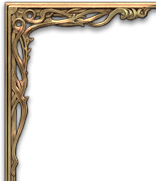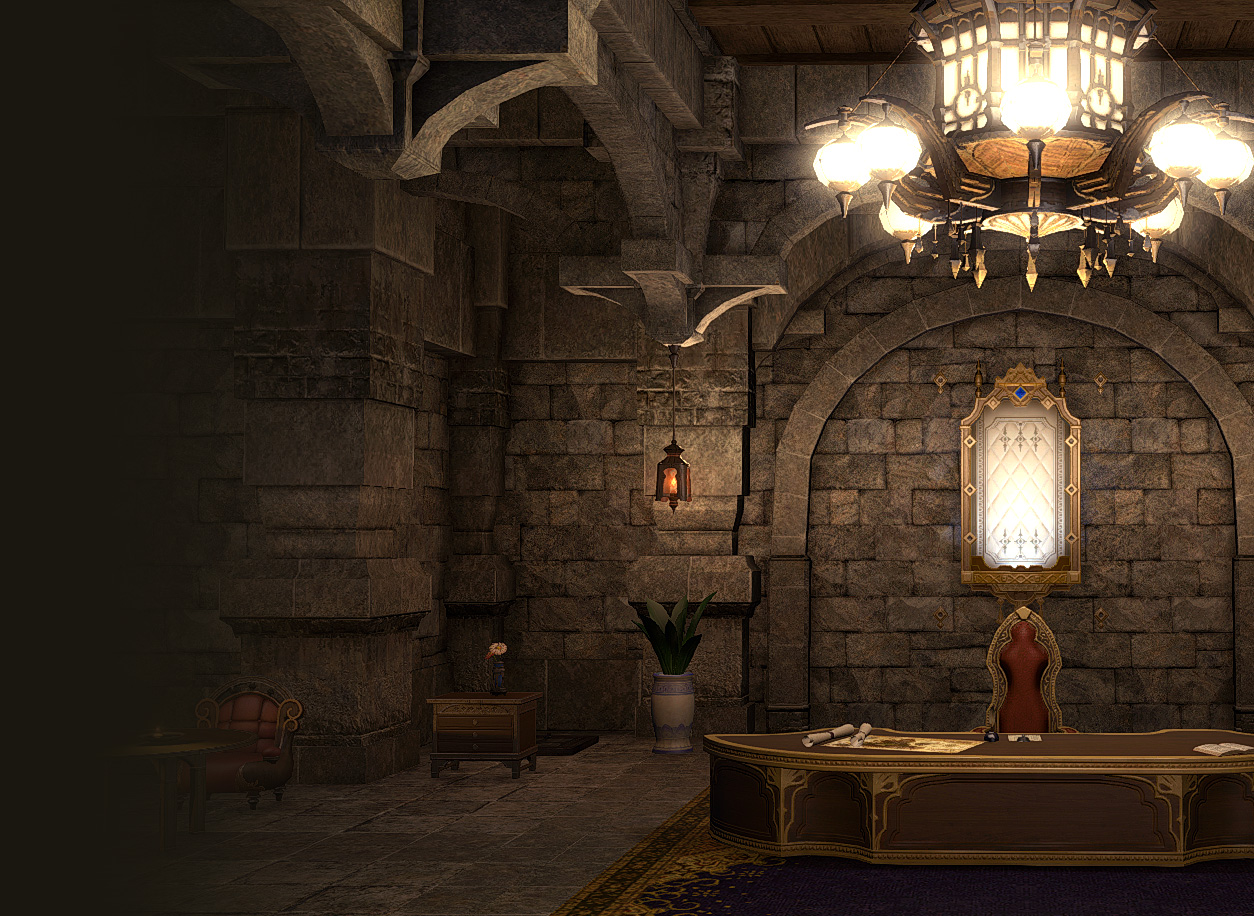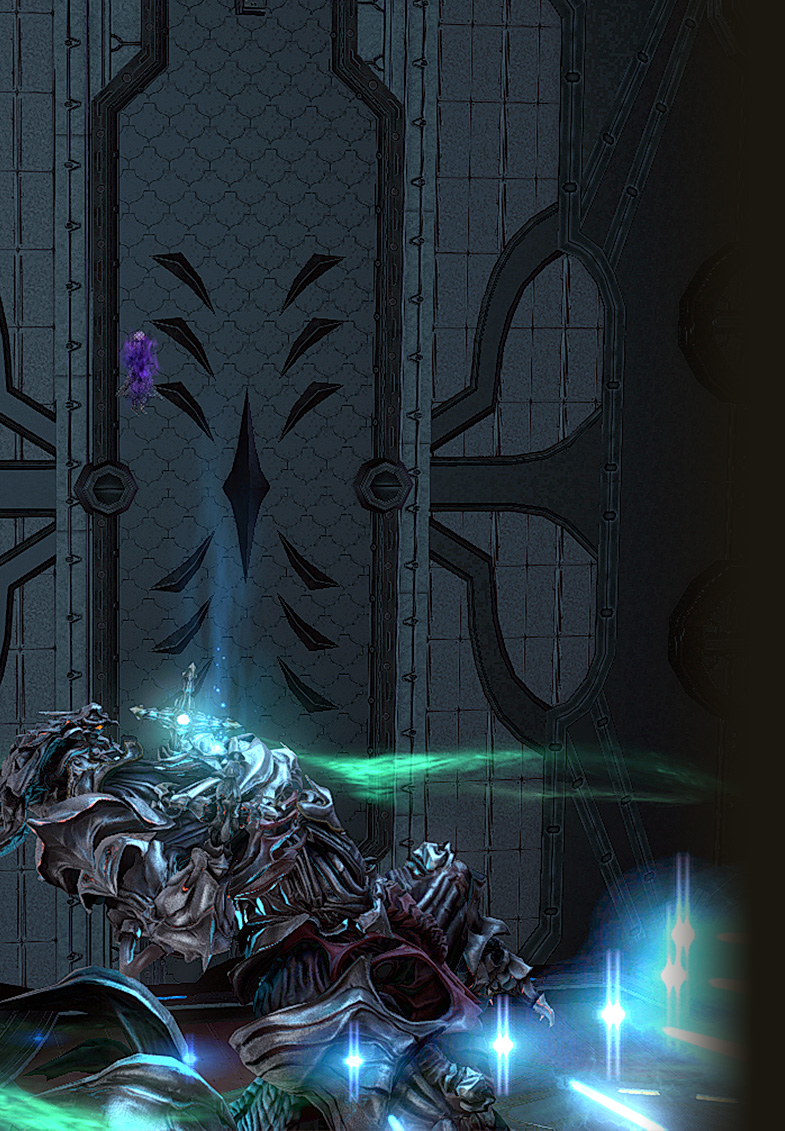General Translation Notes
About the translation process
German isn't my first language and don't live in Germany, so I don't have a lot of cultural context to spot things like regional dialects or pop culture references. It's also inevitable that I will make mistakes sometimes, so if you're a native speaker and spot a mistake or something you think could use a little more explanation, please let me know and I will correct it as soon as possible. I try to be concise in my inline translator's notes and limit my commentary to what I feel is actually necessary to understand what's being said, but I love discussing nitty-gritty details of translation! If you have specific questions or comments about the exact phrasing of a line I'll gladly answer to the best of my ability. You can contact me by emailing germanffxiv@pm.me.
In my translations I will refer to the Warrior of Light with gender-neutral terminology as much as possible, and I will slightly tweak the official English lines to match. These changes are marked with [square brackets]. Sometimes this causes unintented ambiguity in my translations, in these cases any ambiguous terms meant to refer to the Warrior of Light will also be in [square brackets]. However, German is a highly gendered language and both of the characters I play are male, so the German lines will all refer to the Warrior of Light as male.
I try my best to preserve the tone and feeling of a line, which in practise often means leaving out a decent amount of words and punctuation. German has a lot of "filler" words that convey tone and emphasis, and which can be tricky to preserve when translating to English. Tja, doch, schon, bloß, schließlig, the list goes on, are all words which add certain feelings to a character's dialogue in ways that have no clear English equivalents or which would feel awkward when kept in the translated line. I've noticed machine translation often completely ignores these words and the way they influence tone and meaning because they're so context dependent that it doesn't even try. German also uses a lot more commas and periods than English, which would make dialogue feel choppier than it's supposed to be if kept. My translation of the German line occasionally being a lot shorter might seem a little strange, but it's an inevitable result of the structural differences between German and English. My priority is to convey the way it feels to read each line, and if this causes conflicts with the precise meaning of the words I will elaborate on that in a translation note.
While the German script generally stays closer to the Japanese script than the English script does, that doesn't mean you should assume whatever is in the German script is also in the Japanese script, or that the German script is always closer to the Japanese script than the English script is. I have some basic knowledge of Japanese that let me occasionally spot when the Japanese voice line definitely does not correspond to what's in the English or German textbox, but I can't reliably point out every time this happens, and doing so isn't the purpose of this site anyway. I'm only here to tell you about the German script. If you know of a similar resource for the Japanese or French scripts (or Chinese or Korean!) I would love to hear about it.
Finally, while I personally like the German script far more than the English one overall and this is the reason I made this site, please don't take that to mean I think there is no merit to the English script at all or that those who enjoyed the English script are wrong to do so. If I hadn't enjoyed the game in English first this site wouldn't exist, and there are points where I think the English script wins out in the comparison. Please use your own judgement and form your own opinions.
Translation notes for the overall game
The faux-archaic language used by FFXIV characters in English is exclusive to the English translation. In every other language version, including German, characters talk in modern language. German Urianger still talks more flowery than most other characters, but not outright archaic as far as I can tell. In practise I have found that this leads to characters having much more distinct individual speech patterns in German, since they don't need to adhere to this overarching standard of archaic speech.
German has formal and informal second person pronouns. Depending on context, using informal pronouns can be either warm and friendly or rude and pushy, and using formal pronouns can be either respectful and polite or cold and distant. For readers who are familiar with Japanese media in general, it has some similarities with suffixes like -san. You use formal for people who are older than you, who outrank you, or who you have a politely distant relationship with such as strangers on the street, the bus driver, or vague acquaintances from work. Informal is for friends, family, classmates, direct colleagues, young people your own age, and people like that bloke you just met at the bar. Characters in FFXIV are pretty loose with their use of informal but still generally follow expected patterns, Alphinaud uses proper and polite formal pronouns for political leaders when discussing state matters with them for example. Most characters address WoL with informal pronouns, perhaps because "adventurer" isn't a particularly high status even if WoL themselves is highly respected by most, or maybe just to avoid having the game as a whole sound stiff.
I suspect that the German translation team is predominantly Swiss, since the game uses Ihr as formal pronoun rather than Sie, which Wikipedia tells me is common to southern German and Swiss dialects and effectively unused outside those. This would also explain how loose characters are with their use of informal pronouns, as Swiss German supposedly uses the informal much more freely than standard German. This means I am not the best equipped to comment on exactly how respectfully everyone addresses each other, or whether their use of either formal or informal reads as unusual, because I learned standard German and not Swiss German. However, things like a character switching from formal to informal, or a character using formal for someone who uses informal for them, are easy to spot and I will point them out when relevant. For example, Yugiri uses formal for WoL and Alphinaud when she just arrived in Eorzea, but switches to informal after they vouch for her to Nanamo and she's become more comfortable around them, and Alphinaud uses formal for Haurchefant while Haurchefant uses informal for him, which in this case shows admiration and fondness respectively.
The Echo in German is called "the power of transcendence" (die Kraft des Transzendierens). While this is a significant difference, the term is used so much throughout the game that pointing it out every time would only disrupt the flow of the text, and I feel like it's different enough that just directly translating it everywhere without comment might be more confusing than it's worth. Because of that I opted to translate it as "the Echo" across the site. This does result in various lines where people are talking about "your gift" or "your power" in ways that might read a little awkward when in English they just say "the Echo", but it's because English doesn't have the mouthful of "Kraft des Transzendierens" to talk around.
Alisaie and Alphinaud frequently refer to each other as Bruderherz/Schwesterherz. This is a somewhat old-fashioned and ostentatious way to refer to your sibling that is nowadays used as joking hyperbole for this reason, much like "brother/sister dearest." It's a cute way to show how well they get along.














